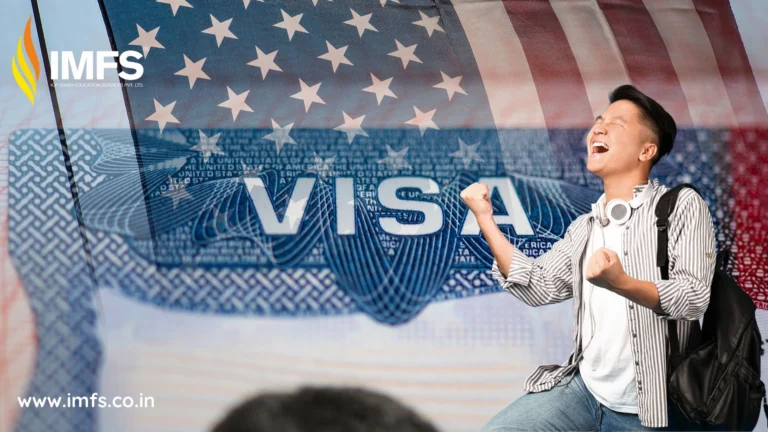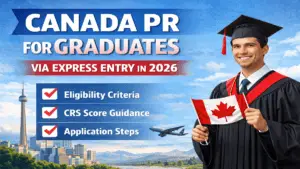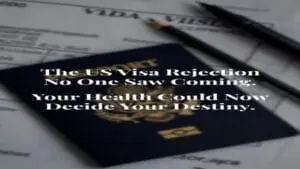Introduction – A Green Light… With a Digital Curtain Call
The gates to American higher education are reopening, but you’re not just showing your grades.
On June 18, 2025, the U.S. State Department sent a cable directing embassies to resume F, M, and J visa scheduling, officially ending the May 27 pause. But as students scramble to sit for interviews during the crucial May to August peak, there’s a new twist: your online identity is under scrutiny.
This isn’t academic hyperbole. Your digital footprint—tweets, blogs, memes—now joins your resume. Read on to understand the updated process, additional vetting layers, and how to navigate this ever-evolving landscape as your mentor and guide.
TL; DR – What You Absolutely Must Know
1. Visa Interviews Resume (June 18, 2025)
The State Department’s new cable ended a 3-week freeze that began May 27, affecting F/M/J visas at U.S. consulates globally.
2. 72% of Student Visas Issued May–August
In 2024, about 70% of student visas were granted between May and August, making this delay a major backlog concern.
3. Mandatory Social Media Public Setting
Applicants must set every account (Instagram, X, Facebook, TikTok, LinkedIn) to public. Refusal risks denial.
4. Broader Vetting Rules Apply to All
Screening now includes social media, publications, LexisNexis/News articles, blogs, and forums covering new and returning students.
5. Detailed Vetting Guidelines
Officers are checking for:
- Hostility toward U.S. citizens, institutions, founding values
- Support for terrorism, antisemitism, violence
- Evidence of political activism likely to continue in the U.S.
- Any digital trace raising national security concerns
6. Bolstered Documentation Required
Officers must take detailed notes and retain screenshots of any flagged content for official records.
7. “Flagged” ≠ Rejected
Flagged content only triggers additional review; the visa may still be approved if you’re likely to respect U.S. laws and comply with status terms.
8. Regional Snags: Tel Aviv Shutdown
The U.S. Consulate in Tel Aviv abruptly canceled appointments due to security issues.
Other posts in London, Brussels, and Germany may see an overflow from Third-Country Nationals (TCNs). The situation is fluid.
9. Visa Ban Expansion Warning
The Trump administration notified 36 more countries—mainly in Africa and the Caribbean—that they could face full or partial entry bans within 60 days if vetting criteria aren’t met.
10. Proclamation 10949 in Effect (June 9)
Entry bans now include full or partial restrictions across 19+ countries, including F/M/J visa categories.
Mentor Tips—Your To-Do List
- Deep Digital Audit
Go beyond social media: search your name, publications, and even offbeat forums. Archive or delete posts that might be misread or taken out of context. - Flip Public Settings: ASAP
At least 7–10 days before your appointment, make every account public. Last-minute changes may raise suspicion. - Prepare For Explaining Your Digital History
If you’ve participated in activism or shared strong views, be ready to explain: Why? What did you learn? How does that align with your academic goals? - Act Fast on Appointments
The backlog is real. Fill out DS-160 forms early, pay SEVIS fees, and gather documentation. Delay isn’t an option. - Consider Backup Consulates
Tel Aviv is currently closed. If you plan to apply there, be ready to shift to London, Brussels, or Germany, but expect stricter TCN rules. - Track Travel Ban Developments
If you’re from one of the 36 countries warned or the 19 already restricted, this number is expected to go up; watch official channels for changes.
Bigger Picture: Security or Suppression?
This surge in digital vetting has galvanized both support and concern. Civil liberties advocates caution: this could stifle free expression and mirror Cold War ideological oversight. Critics call it “pre-fab racist bullshit” blanket-banning citizens from entire regions without evaluating individuals.
Meanwhile, U.S. officials argue it’s common sense in a digital age. The goal? “Properly screening every single person attempting to visit our country.”
You’re in the crosshairs of policy and privacy. The challenge: how to polish your dream without erasing your identity.
Final Mentor Word: You’ve Got This
Yes, this year demands more than transcripts and test scores. But here’s the truth: that’s good for you. It pushes you to be precise, intentional, and candid—qualities that U.S. universities value.
The digital mirror you’re asked to hold is tough but clear. It reflects focus, integrity, and readiness to engage on global terms.
So take a deep breath. Audit your online self. Sharpen your narrative. Make your accounts public. Be ready to explain, but be prepared to embrace this as a chance to align your digital profile with your academic ambition.
The green light is back on, and when you step through, it’s not just your passport that shines. It’s your digital self also—crafted with care, confidence, and clarity..





